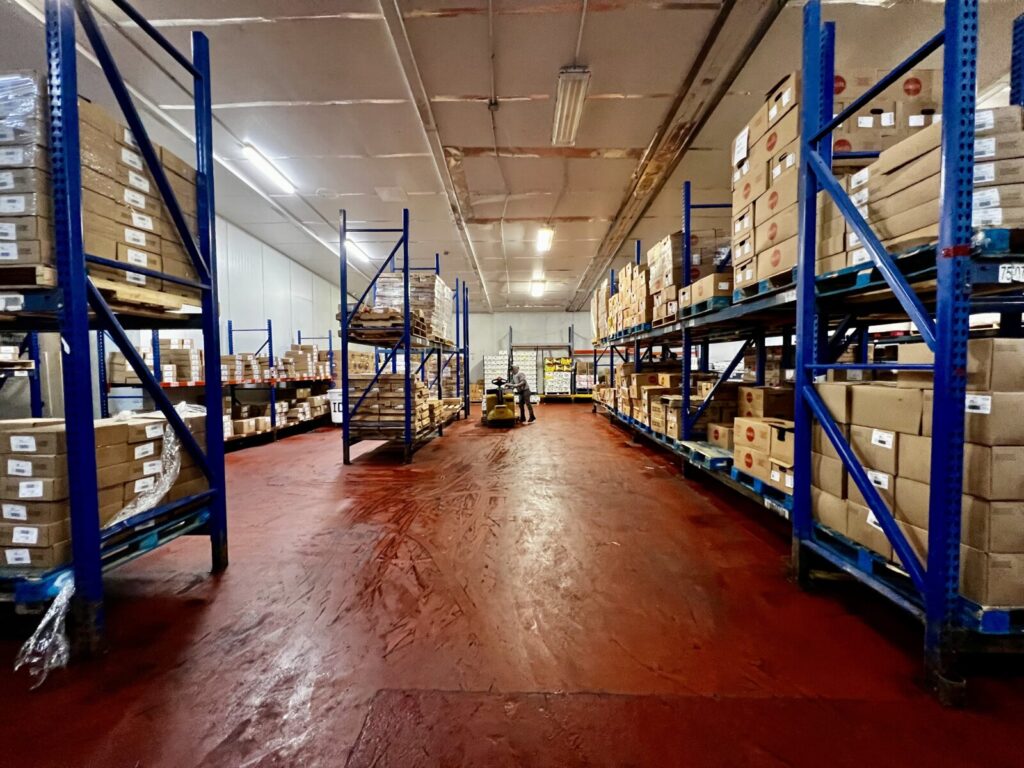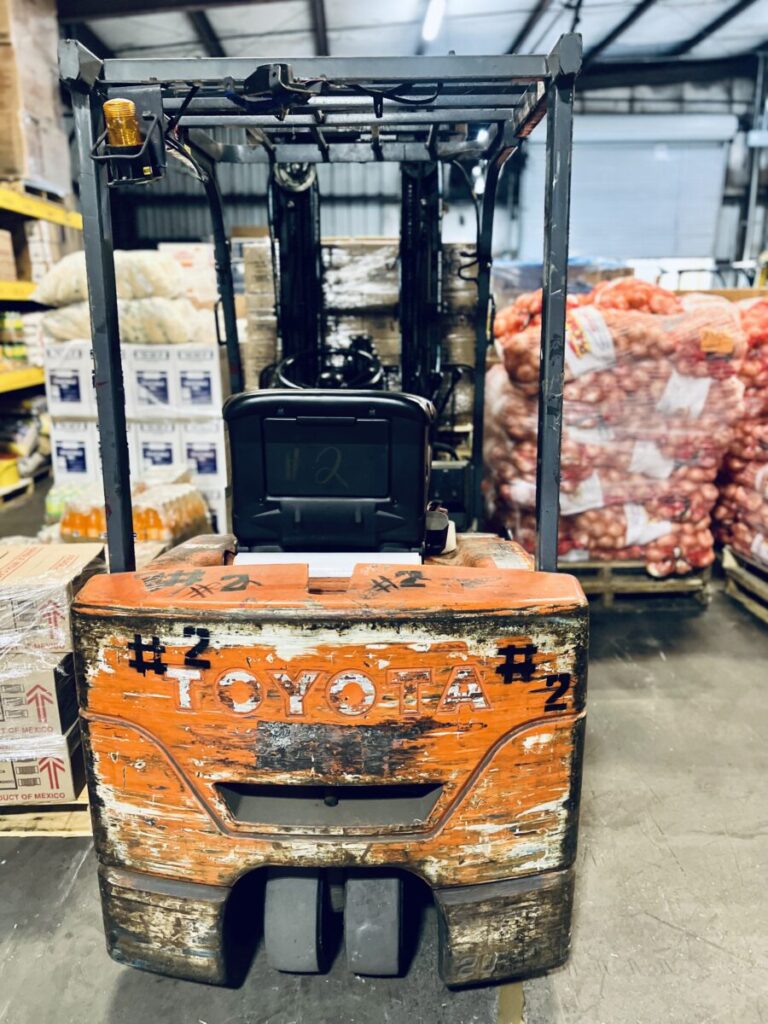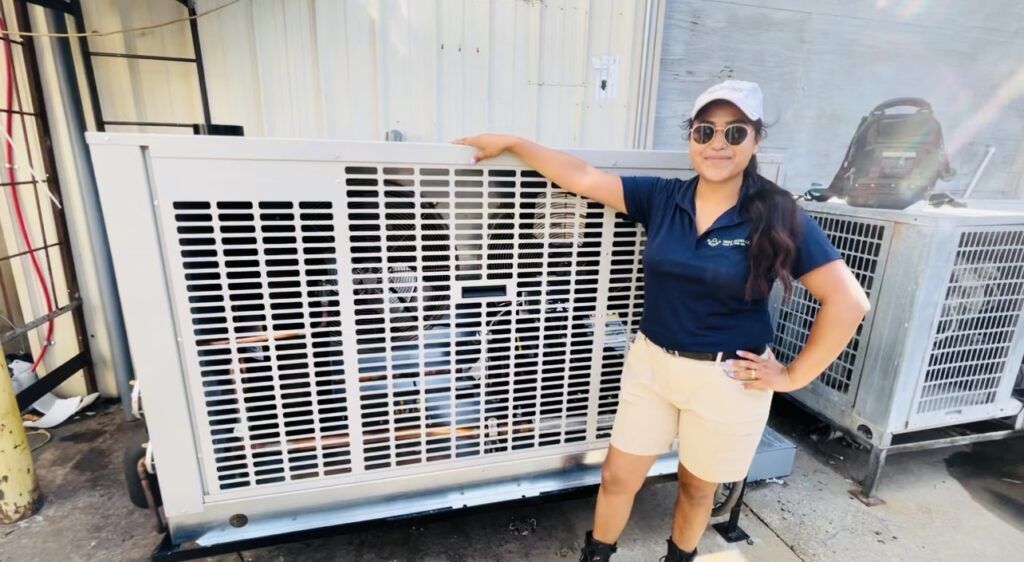Proper climate control is essential for storing temperature-sensitive products like food, pharmaceuticals, or chemicals. Cold storage refers to the storage of products at temperatures below room temperature. This ensures that the products remain safe and maintain their quality until someone is ready to use or consume them.
In this article, we will discuss the importance of cold storage, the critical temperatures for different products, and the process of installing a cold storage unit.
Why is Cold Storage Important?

Controlling the temperature of products is crucial for preserving the quality and safety of temperature-sensitive products. Without proper storage, these products can spoil, lose their potency, or become unsafe for consumption. This can result in significant financial losses for businesses and potential health risks for consumers.
Cold storage is important in the supply chain to keep products at the right temperatures and preserve their quality. This is especially important for perishable goods, such as fresh produce, dairy products, and vaccines.
Critical Temperatures for Different Products
Each product requires a specific storage temperature to maintain its quality and safety. Here are some examples of critical point temperatures for common products:
- Fresh produce: 32-55 degrees Fahrenheit
- Dairy products: 33-38 degrees Fahrenheit
- Frozen foods: 5 or lower degrees Fahrenheit
- Vaccines: 36-45 degrees Fahrenheit
- Chemicals: 40-65 degrees Fahrenheit
Monitoring and maintaining critical temperatures is crucial to guarantee the safety and quality of the products.
The Process of Installing a Cold Storage Unit
Setting up a cold storage unit requires careful planning and execution. This ensures that the storage meets the specific needs of the products. Here are the steps involved in installing a cold storage unit:
1. Determine the Type of Cold Storage Needed
The first step in installing a cold storage unit is to determine the type of cold storage options needed for the products. Various types of cold storage, include walk-in coolers, refrigerated warehouses, and blast freezers. The storage needed will vary based on the products, volume, and temperature needed.
2. Choose the Right Location

The location of the cold storage unit is crucial for its efficiency and effectiveness. Place the entry opening in a location that is easy to access. This will make it easier to load and unload products.
The location should also have good ventilation and drainage. To maintain the desired temperature of the unit, avoid placing it in direct sunlight or near sources of heat. This will help prevent the unit from overheating.
Placing the unit in a shaded area will also help it operate more efficiently. Keeping the unit away from heat sources will prolong its lifespan.
3. Prepare the Site
Prepare the site before installing the cold storage unit. This means ensuring that the ground is level and strong. It also involves making sure there is proper drainage to prevent water from pooling near the unit. The site should also have access to electricity and water for the unit’s operation.
4. Install the Unit
Once you prepare the site, you can install the cold storage unit. This involves assembling the unit’s panels, installing the refrigeration system, and connecting the unit to electricity and water sources. Following the manufacturer’s instructions carefully is essential to ensure that you install the unit correctly.
5. Test and Inspect the Unit
After installation, you should test and inspect the cold storage unit to ensure that it is functioning correctly. This includes checking the temperature, humidity levels, and air circulation inside the unit. You should address any issues before storing products in the unit.
6. Maintain the Unit

Regular maintenance is crucial for the proper functioning of a cold storage unit. This involves cleaning the unit, checking for leaks or damage, and making sure the refrigeration system is working properly. Having a maintenance schedule is a good idea to avoid problems and keep the unit in good condition.
Cold Storage in Georgia
Georgia’s hot and humid summers create a challenging environment for industries that rely on cold storage. With temperatures often reaching well above 90 degrees Fahrenheit, proper refrigeration and storage of goods is essential to prevent spoilage and maintain product quality.
The state of Georgia is known for its thriving agricultural industry, producing a wide variety of crops such as peaches, peanuts, and pecans. These perishable goods require careful handling and storage to ensure they reach consumers in optimal condition. Additionally, the state is home to numerous food processing facilities that rely on cold storage to preserve ingredients and finished products.
In addition to agriculture and food processing, Georgia is also a hub for pharmaceutical companies that require precise temperature control for storing medications and vaccines. Proper cold storage is crucial in maintaining the efficacy and safety of these products, as any deviation in temperature could lead to spoilage or reduced potency.
Overall, the need for reliable cold storage solutions in Georgia is paramount for industries to operate efficiently and effectively in the state’s hot and humid climate. Proper refrigeration not only ensures the quality and safety of goods but also plays a crucial role in supporting the economy and meeting consumer demand.
HVAC Allies is a trusted provider of HVAC services in Georgia, offering a wide range of solutions for businesses in need of cold storage solutions. Our team of experienced technicians is highly skilled in the installation, maintenance, and design of HVAC systems, ensuring that our clients receive top-notch service every time.
When it comes to cold storage solutions, we understand the importance of reliability and efficiency. That’s why we use only the best equipment and technology to ensure that our clients’ cold storage needs are met with precision and care. Whether you need a new system installed, regular maintenance performed, or a custom design created for your specific needs, HVAC Allies has the expertise and resources to get the job done right.
Our commitment to excellence and customer satisfaction sets us apart from other HVAC companies in the state. We take the time to understand our clients’ needs and provide personalized solutions that meet and exceed their expectations. With HVAC Allies, you can trust that your cold storage needs are in good hands. Contact us today to learn more about how we can help your business thrive with reliable and efficient HVAC solutions.
Conclusion
Cold storage is essential for preserving the quality and safety of temperature-sensitive products. It is crucial to monitor and maintain critical temperatures to ensure that the products remain safe and of high quality. The process of installing a cold storage unit involves careful planning, choosing the right location, and regular maintenance.
Businesses can keep their products fresh by taking the correct steps. They can also work with a reliable company to store the products at the appropriate temperatures. This ensures that the products are ready for use when needed.

Leave a Reply